Life
-
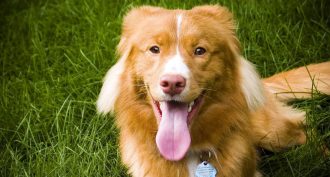 Animals
AnimalsWeed killers may go from plant to pooch
Dogs love to roll around in the grass. But if there is weed killer around, it could end up on — and in — our furry pals.
-
 Brain
BrainParents’ math anxiety can ‘infect’ kids
A study of first- and second- graders found that kids whose parents fear math learn less math at school ¬— but only when parents help with homework.
By Ilima Loomis -
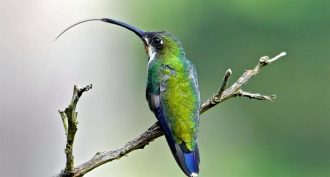 Animals
AnimalsHummingbird tongues may be tiny pumps
Scientists had thought that hummingbird tongues work through capillary action. A new study, though, concludes they work like little pumps.
By Susan Milius and Sarah Zielinski -
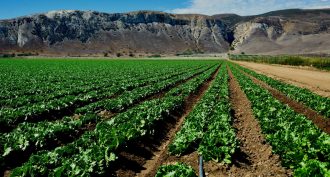 Agriculture
Agriculture‘Wildlife-free’ farms don’t make salads safer
Scientists find that removing wildlife from farms did not make raw vegetables safer to eat.
-
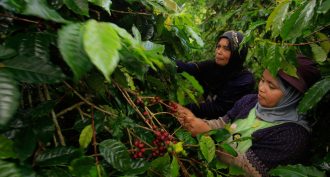 Agriculture
AgricultureMade in the shade
Agroforestry combines woody plants and agriculture. Growing trees alongside crops and livestock benefits wildlife, environment, climate — and farmers.
-
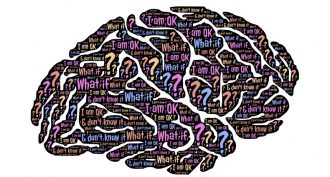 Brain
BrainChildhood stress can leave changes in the adult brain
A new study finds that young men who had experienced lots of stress early in life carried a lasting legacy — changes in the size and shape of their brains.
-
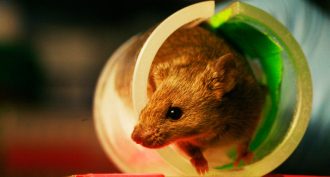 Environment
EnvironmentSome pollutants made mice less friendly
Hormone-interfering chemicals make mice less social and may also alter their weight, a study finds. That affected the animals’ confidence — and behavior.
By Tara Haelle -
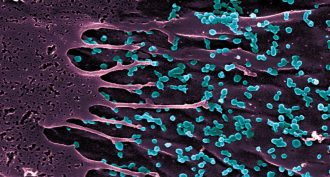 Health & Medicine
Health & MedicineChikungunya wings its way north — on mosquitoes
A mosquito-borne virus once found only in the tropics has adapted to survive in mosquitoes in cooler places, such as Europe and North America.
By Nathan Seppa -
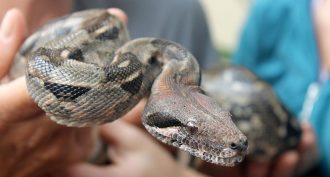 Animals
AnimalsBoa constrictors stop their victims’ hearts
It’s a myth that boa constrictors kill by suffocation. A new study shows the snakes actually squeeze off blood flow, stopping the hearts of their prey.
By Susan Milius -
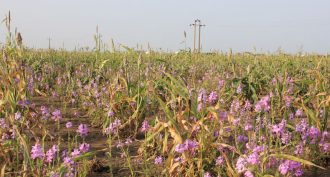 Plants
PlantsPlant ‘vampires’ lay in wait
A new study shows how some parasitic plants evolved the ability to sense a potential host — and then send out root-like structures to feed on them.
-
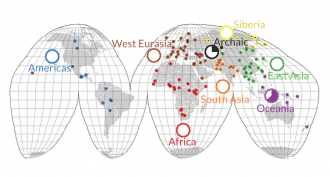 Genetics
GeneticsDNA: Our ancient ancestors had lots more
Ancestral humans and their extinct relatives had much more DNA than do people today, a new study finds. It mapped genetic differences over time among 125 different human groups.
-
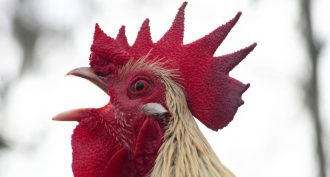 Animals
AnimalsTop rooster announces the dawn
Roosters know their places in the chicken world. Lower-ranking birds defer to the guy at the top of the pecking order. And they show it by holding their crows until after he greets the new day.
By Susan Milius